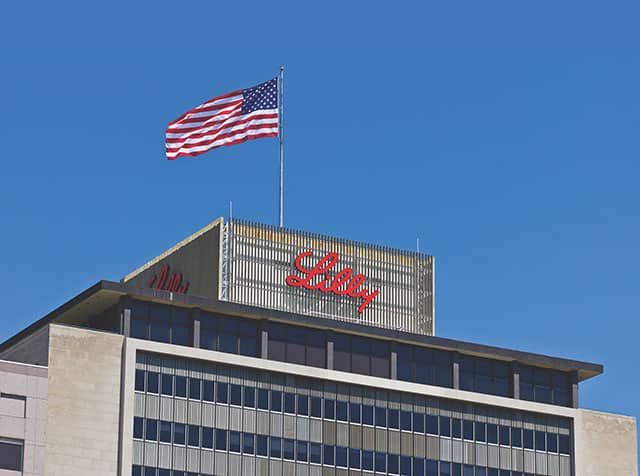
Eli Lilly has cut short a clinical trial of its antibody treatment bamlanivimab in hospitalised COVID-19 patients after reviewing an updated dataset.
Yesterday, Lilly released a statement saying that no additional COVID-19 patients in the hospitalised setting will receive bamlanivimab, based on trial data suggesting that the antibody Is ‘unlikely’ to help this group of patients recover.
Lilly initially paused the US National Institute of Allergy and Infectious Diseases (NIAID) partnered study earlier this month.
According to Reuters, a US National Institutes of Health (NIH) spokeswoman said the trial in question was paused when the independent data and safety monitoring board (DSMB) found that the antibody-treated group showed a different ‘clinical status’ after five days of treatment compared to the placebo arm.
In a statement regarding the original trial pause, Lilly said that the participants in the ACTIV-3 study had been infected with the novel coronavirus for a longer period of time, meaning they could have more severe symptoms when compared to patients in other trials investigating bamlanivimab.
This could result in the neutralising antibody having less benefit in hospitalised COVID-19 patients, Lilly added.
The pharma giant is investigating bamlanivimab on its own and in combination with other antibodies and antivirals across a number of additional settings, which have remained unaffected.
This includes an ongoing phase 2 study in people recently diagnosed with COVID-19 in the ambulatory setting, a phase 3 study for the prevention of COVID-19 in residents and staff at care homes and in recently diagnosed mild-to-moderate COVID-19 patients.
Lilly is also facing issues regarding safety concerns over a manufacturing plant based in New Jersey in the US, where the investigational antibody treatment is being manufactured.
Reuters previously reported that the US Food and Drug Administration (FDA) had discovered ‘serious quality control issues’ at the plant last year. Inspectors discovered last November that data had been deleted from previous manufacturing processes, which resulted in an ‘Official Action Indicated’ notice being issued.
Lilly has since confirmed that it had previously received the OAI notice, adding that the issues raised during the inspections have its ‘full attention’. It added that it has hired an independent consultant to review the systems at the plant in Branchburg, New Jersey.
In relation to cutting short its ACTIV-3 trial, Lilly also disclosed that the difference in safety outcomes between the groups in the study were not significant.
Data from the BLAZE-1 study of bamlanivimab in high-risk patients who have recently been diagnosed with mild-to-moderate COVID-19 form the basis of Lilly’s emergency use authorisation (EUA) submission to the FDA.
In an interim analysis of the study, the antibody treatment helped to reduce hospitalisation and accident and emergency visits for COVID-19 patients.
Lilly said that it is confident that the data from this study could indicate that bamlanivimab monotherapy may prevent disease progression for COVID-19 patients earlier in the treatment pathway.




